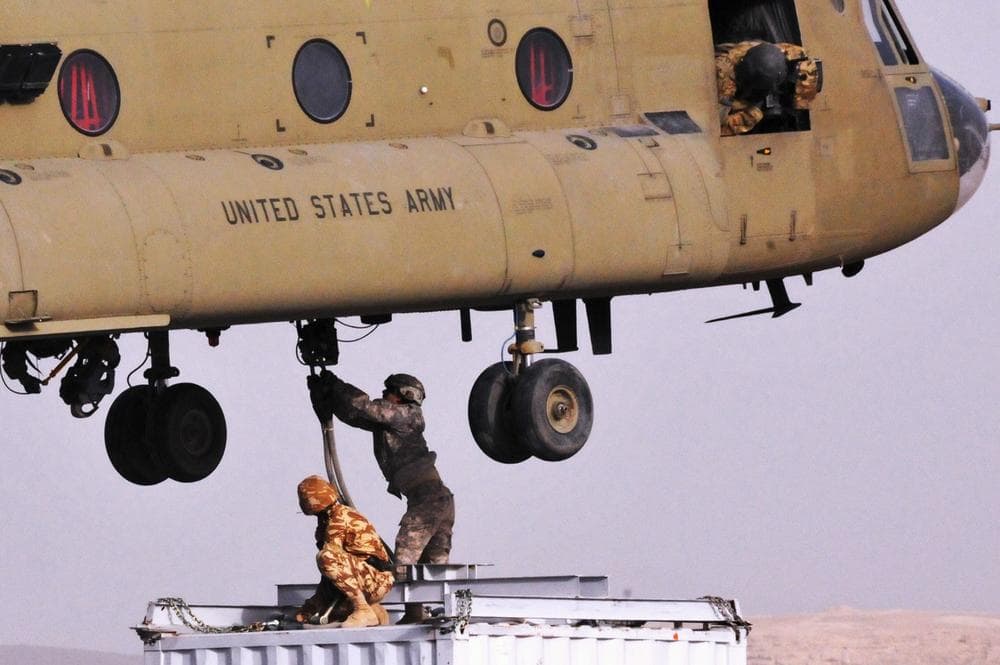Advertisement
US Helps Dissidents Skirt Blockades With 'Internet In A Suitcase' Project
ResumeHere & Now Guest:
- James Glanz, New York Times
During the Arab spring this year, governments in Egypt and Syria were able to cut off their citizens from the Internet and mobile phone networks, with the flick of a switch. With dissidents relying on social media sites to organize protests and spread their messages, the U.S. government is financing technologies for them to circumvent these communication black-outs.

The New York times reports that these efforts are helping to create "shadow" Internet and mobile phone networks.
The paper reports that the U.S. government has spent $2 million to help develop the so-called "Internet in a suitcase" project, led by former hackers, who seem more like characters from the "Girl with a Dragon Tattoo" than State Department contractors:
In an anonymous office building on L Street in Washington, four unlikely State Department contractors sat around a table. Josh King, sporting multiple ear piercings and a studded leather wristband, taught himself programming while working as a barista. Thomas Gideon was an accomplished hacker. Dan Meredith, a bicycle polo enthusiast, helped companies protect their digital secrets.
The Internet suitcase would use technology that can turn cellphones and personal computers into mini cell towers, allowing users inside a trusted circle to communicate with each other and connect to the world wide web.
The NY Times reports that the Pentagon is also spending $50 to $250 million to develop a shadow cell phone network in Afghanistan, which would keep communication lines open when Taliban forces shut down cell phone networks there.
This segment aired on June 14, 2011.